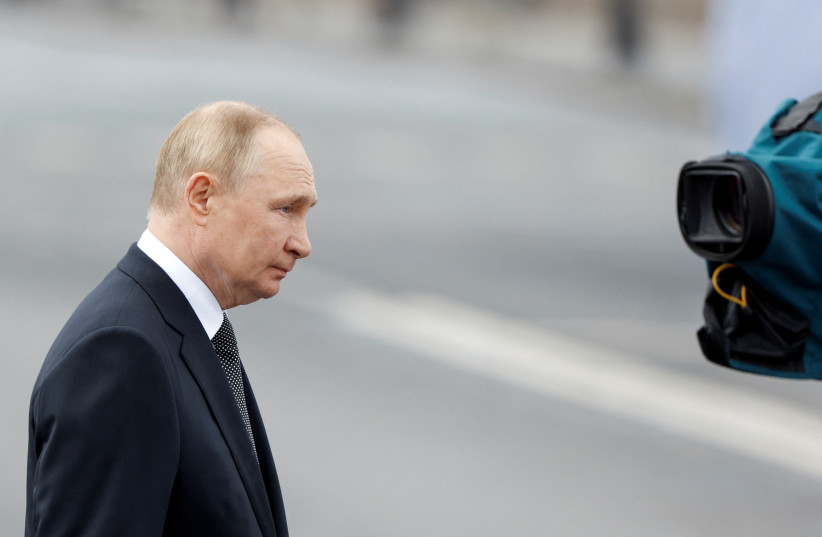Representatives of the Jewish Agency are expected to arrive at Moscow’s Basmanny District Court on Friday to defend the legacy of the Israeli organization after the Russian Justice Ministry decided to close down its offices in the country.
The ministry sent a letter to the agency’s offices in Moscow in June, explaining that it would be considered a “foreign agent” and therefore would not be allowed to continue its activities. The letter was exclusively obtained by The Jerusalem Post in July.
What are <a href="https://m.jpost.com/diaspora/article-714350" target="_blank" rel="">the scenarios</a> for the Jewish Agency trial in Russia?
1. The optimistic scenario:
The judge will say: “I heard the arguments. The Justice Ministry has no case regarding the claims that the Jewish Agency should be considered a foreign agent, and therefore the agency can continue to operate in Russia.”
This scenario is the least probable.

If this is what happens, the agency will be able to continue operating in Russia, but it will be under a constant magnifying glass. Every comment or move would need to be thought out carefully.
2. The pessimistic scenario:
The judge will hear all sides and after one hearing will say: “The Justice Ministry is right. There is no reason to drag out this case, and the Jewish Agency should leave Russia.”
This scenario is possible, but legal experts in Russia say trials do not usually end in this manner, even if the defendant is an enemy of the regime. In this situation, the agency will still be able to appeal to a higher court.
3. The realistic yet optimistic scenario:
The judge will send the agency representatives to negotiate a settlement outside of court or possibly to mediation.
This scenario is a positive one in the eyes of the heads of the Jewish Agency, especially since it gives them more time to strategize how to proceed.
4. The realistic complex scenario:
The judge will hear all parties and decide that she needs to have a deeper understanding of this case. In this situation, she will schedule another hearing, and the legal process will continue.
This scenario is neither bad nor good, but it is a continuation of the status quo. As long as the trial continues, the agency can still operate in Russia.
What does this mean?
Nobody knows how much Russian political intervention is taking place behind the scenes. According to diplomatic sources, Russian President Vladimir Putin gave no hint about his intentions to President Isaac Herzog in their conversation a few days ago.
“He repeated the sound bite that this is a legal matter, and lawyers need to handle it,” a source said.
The Russians have not demanded the return of Alexander’s Courtyard in Jerusalem (Alexander Nevsky Church), nor did they demand a change of policy in Jerusalem regarding the war in Ukraine, according to sources.
It is clear that the Jewish Agency is preparing for the worst. In addition, it has asked Prime Minister Yair Lapid to allow the “Go-No-Go” expedited aliyah process for Russian Jews, as it does for Ukrainian olim. There is a major bottleneck of Russian citizens who are eligible to make aliyah but cannot begin the process in the near future because of the huge numbers of Russians who have asked to immigrate to Israel.
The Interior Ministry’s Population and Immigration Authority is overwhelmed, and Israelis cannot schedule appointments and need to wait months before being able to receive a new passport. This crisis adds to the logjam that is delaying the authority’s ability to promote the immediate processing of tens of thousands of Russian Jews.
What are the most recent immigration numbers?
Some 12,508 Ukrainians have made aliyah since the invasion began, while 20,859 Russians have, as well as 1,082 Belarusian Jews.
In addition, 44,037 Ukrainian citizens and 70,092 Russian citizens have entered Israel since the end of February, and 17,660 Ukrainians and 38,423 Russians have left.
More than 35,000 Russians have filed aliyah applications and are waiting to begin the process of immigrating to Israel, according to sources in the Jewish Agency.
